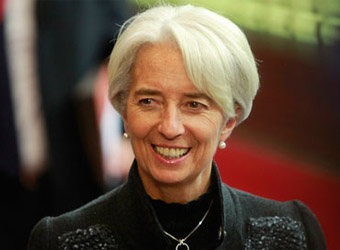It is time for the world’s central banks and regulators to get serious about digital currencies, according to the head of the International Monetary Fund, Christine Lagarde.
Global financial institutions are taking risks by not watching and understanding emerging financial tech products that are already starting to shake up the financial services and global payments system, Lagarde said Friday.
“I think that we are about to see massive disruptions,” Lagarde told CNBC in a Facebook Live interview on the sidelines of the IMF Annual Meetings in Washington D.C.
Asked whether she agreed with JPMorgan Chase CEO Jamie Dimon’s comments that bitcoin is a “fraud,” Lagarde said it’s important to look at the broader implications of technologies like digital currencies.
“I think we should just be aware of not categorizing anything that has to do with digital currencies in those speculation, ponzi-like schemes,” she said. “It’s a lot more than that as well.”
Lagarde didn’t rule out that the IMF could at some point develop its own cryptocurrency. She pointed to the IMF’s Special Drawing Right (SDR), a currency the IMF created to serve as an international reserve asset, that could incorporate technology similar to cryptocurrencies.
“What we will be looking into is how this currency, the special drawing right, can actually use the technology to be more efficient and less costly,” she said.
Lagarde moderated a panel discussion on Thursday focused on fintech and the role of central banks, featuring central bank officials and executives from fintech companies. Lagarde told CNBC she expects the IMF will play a role in regulating the fintech industry going forward.
“My hope is that we can participate in that process because I see that as a very cross-border process,” she said.
Fintech, Lagarde said, is already causing disruptions in the financial services industry as new technologies lower the cost of financial transactions. She pointed to distributed ledger technology like blockchain that can help make the banking system more inclusive.
“I think of women in some of the developing countries that have to carry cash around who are at risk of violence and all the rest of it,” she said. “If they can use their cell phone and operate in a much more discreet and efficient way, it would be terrific.”
Source: CNBC


